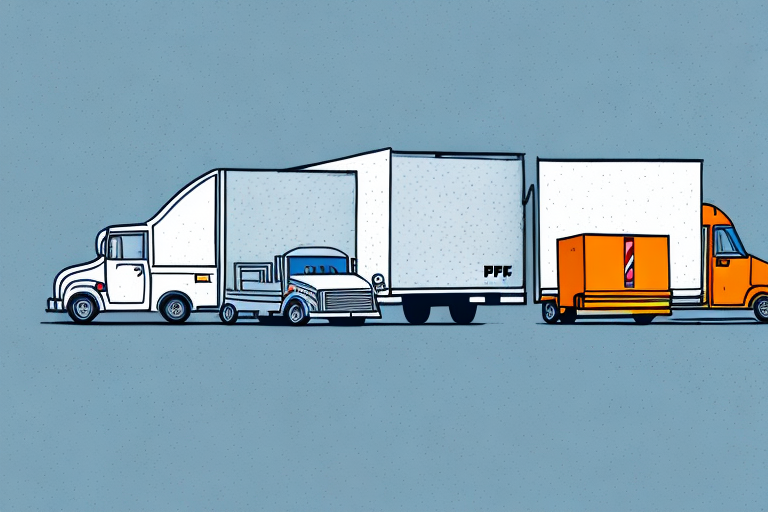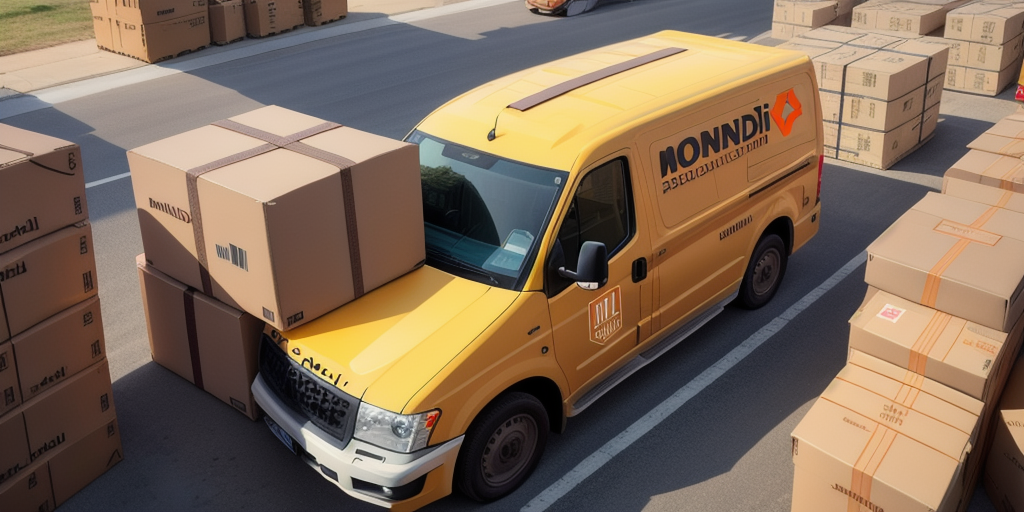History and Business Approach of FedEx and UPS
FedEx and UPS are two of the most prominent names in the shipping and logistics industry, each with a unique history and business strategy. FedEx, short for the Federal Express Corporation, was founded in 1971 by Fred Smith. Smith conceived the idea of overnight delivery while at Yale University, launching the company with 14 small planes. Over the decades, FedEx has expanded its operations to over 220 countries and territories, focusing primarily on air transportation and express delivery services.
On the other hand, UPS (United Parcel Service) was established earlier, in 1907, as a messenger company in Seattle, Washington. It expanded beyond local deliveries in the 1920s, evolving into a global logistics powerhouse. Today, UPS employs over 500,000 individuals and operates in more than 220 countries and territories. Unlike FedEx's emphasis on air services, UPS offers a diversified portfolio that includes ground transportation, freight forwarding, and comprehensive logistics solutions.
While both companies have similar global footprints, their business models differ significantly. FedEx is often perceived as the faster, albeit more expensive option, specializing in time-definite deliveries. In contrast, UPS is known for its affordability and extensive ground network, catering to a broader range of shipping needs. Both continue to innovate, with FedEx investing in advanced technologies and UPS enhancing its e-commerce capabilities.
Comprehensive Services and Shipping Options
Domestic and International Shipping
Both FedEx and UPS offer an extensive array of shipping services tailored to various needs:
- FedEx Express: Specializes in overnight and time-definite deliveries.
- FedEx Ground: Handles non-urgent package deliveries within North America.
- FedEx Freight: Manages LTL (less-than-truckload) shipments.
- UPS Ground: Provides cost-effective ground shipping solutions.
- UPS Worldwide Express: Offers time-definite international deliveries.
- UPS My Choice: Allows customers to manage and track their deliveries effectively.
Specialized Industry Services
Each company caters to specific industries with specialized solutions:
- FedEx Healthcare Solutions: Provides temperature-controlled shipping for medical supplies and equipment.
- UPS Automotive: Offers customized logistics solutions for automotive manufacturers and dealerships.
Advanced Technology Integration
Both FedEx and UPS have integrated advanced technologies to enhance their service offerings:
- FedEx Delivery Manager: Enables customers to customize delivery preferences and receive real-time updates.
- UPS Access Point: Provides convenient pickup and drop-off locations for packages.
Shipping Rates and Cost Analysis
Domestic Shipping Rates
The cost of domestic shipping with FedEx and UPS varies based on several factors, including package weight, dimensions, destination, and delivery speed. Generally, FedEx Express services are more expensive but offer faster delivery times, making them ideal for urgent shipments. Conversely, UPS Ground services are more affordable and suitable for non-urgent deliveries. It's advisable to use both companies' rate calculators to determine the most cost-effective option for your specific needs.
International Shipping Rates
International shipping rates are influenced by additional factors such as customs duties, taxes, and brokerage fees. Both FedEx and UPS offer competitive international shipping services, but rates can vary depending on the destination country and the nature of the shipment. For accurate pricing, it's essential to compare the rates using the updated calculators on their respective websites:
Additionally, specialized international shipping services may offer more streamlined customs processes and competitive rates, beneficial for frequent international shippers.
Delivery, Tracking, and Customer Support
Delivery Options
Both companies provide a variety of delivery options to accommodate different needs:
- Signature Required: Ensures that packages are delivered directly to the recipient.
- Flexible Delivery Windows: Allows customers to choose preferred delivery times.
- Same-Day Delivery: Available through specialized services like FedEx SameDay® or UPS Express Critical.
Tracking Capabilities
Real-time tracking is a critical feature offered by both FedEx and UPS:
- FedEx: Utilizes the SenseAware® platform for high-value shipments, providing environmental condition monitoring.
- UPS: Offers the UPS My Choice platform, enabling detailed tracking and delivery management.
Customer Service and Support
Effective customer support enhances the overall shipping experience:
- FedEx: Provides 24/7 customer support through phone, email, and chat, along with a customer support forum and active social media channels.
- UPS: Offers comprehensive support via phone, email, chat, and a dedicated customer support app.
While both companies strive for excellence in customer service, recent feedback suggests that UPS has faced more complaints regarding delivery delays and support responsiveness compared to FedEx.
Security, Packaging, and Technological Innovations
Security Features
Ensuring the security of shipments is paramount for both FedEx and UPS:
- Tamper-Evident Packaging: Prevents unauthorized access to packages.
- Signature-Required Deliveries: Adds an extra layer of security by verifying recipient identity.
- Advanced Tracking Systems: Monitor packages throughout the delivery process to prevent loss or theft.
Packaging Options
Both companies offer a range of packaging solutions to suit different shipping needs:
- Standard Packaging: Includes envelopes, boxes, and padded bags.
- Custom Packaging: Tailored solutions for fragile or high-value items.
- Eco-Friendly Options: FedEx provides packaging made from 100% recycled materials, while UPS offers compostable cushioning products.
Technological Advancements
Innovation drives the efficiency and reliability of shipping services:
- FedEx SenseAware®: Offers real-time tracking of environmental conditions for sensitive shipments.
- UPS Access Point: Enhances package accessibility through a network of local pickup locations.
- Automated Sorting Systems: Improve accuracy and speed in package handling for both companies.
Environmental Initiatives and Sustainability
Both FedEx and UPS are committed to reducing their environmental impact through various sustainability initiatives:
- FedEx: Aims to achieve carbon-neutral operations by 2040. Initiatives include investing in electric vehicles, utilizing renewable energy sources, and enhancing packaging efficiency to minimize waste.
- UPS: Targets carbon neutrality by 2050. Strategies involve deploying alternative fuel vehicles, optimizing delivery routes with smart routing technology, and constructing energy-efficient facilities.
These efforts not only contribute to environmental conservation but also resonate with increasingly eco-conscious consumers and businesses.
Pros, Cons, and Common Complaints
Advantages of Choosing FedEx
- Faster and more reliable express delivery options.
- Comprehensive tracking and customization features.
- Strong commitment to sustainability and advanced technological integrations.
Advantages of Choosing UPS
- More affordable ground and non-urgent delivery options.
- Extensive global network and robust logistics solutions.
- Advanced e-commerce support and large-scale operational capabilities.
Common Customer Complaints
Despite their strengths, both companies face similar customer challenges:
- Delivery Delays: Unforeseen circumstances can lead to delays in package delivery.
- Lost or Damaged Packages: Instances of packages being misplaced or arriving in poor condition.
- Poor Customer Service Experiences: Difficulty in resolving issues promptly.
- Billing Discrepancies: Errors in billing or unexpected charges.
Both FedEx and UPS have established processes to address these complaints, but customer experiences can vary based on specific circumstances and locations.
Conclusion
Choosing between FedEx and UPS depends largely on your specific shipping requirements and priorities. FedEx excels in providing fast, reliable express services with advanced tracking and a strong focus on sustainability. In contrast, UPS offers more economical ground shipping options with an extensive global network and comprehensive logistics solutions.
By evaluating factors such as shipping rates, delivery options, customer service, security features, packaging, technology integration, and environmental initiatives, you can make an informed decision that best suits your personal or business needs. Both companies continue to innovate and adapt in a competitive market, ensuring that they remain top choices for shipping and logistics worldwide.


















